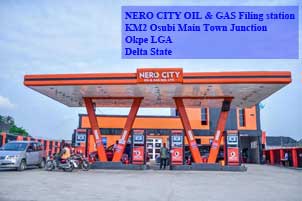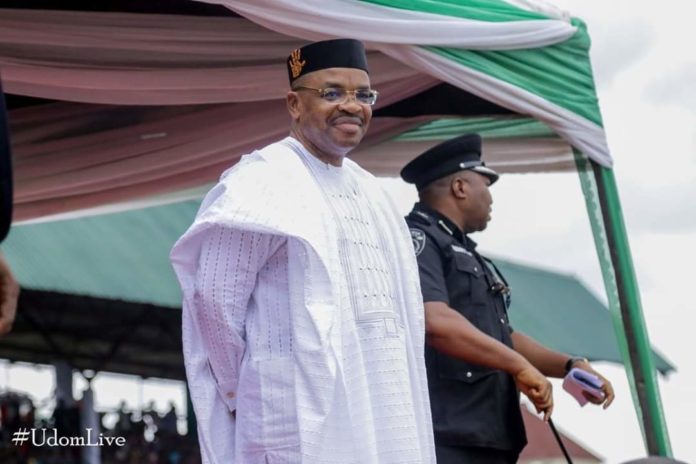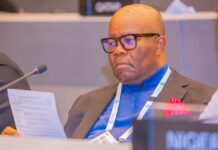Governor Udom Emmanuel
By Ernest Udoh – Robert
The world economy is blinking and rapidly changing. And economic soothsayers are looking into their crystal balls prophesying a downturn. Countries are in distress and seeking solutions to a rather unpredictable occurrence, courtesy of Coronavirus pandemic.
COVID-19 is not only a pandemic with widespread impact, it is changing the way we view and approach different aspects of our lives, businesses, economic order, worship and relationships.
Interestingly, the changes are diverse and unprecedented, just like the virus itself. The changes depend on the type of business, industry, country, extent of COVID-19 spread and disruption. One thing that is clear is that there are changing preferences emerging new normal.
READ : Stop publicising payment of salary on social media, TUC tells Akwa Ibom gov’t
The people will have to braze up for this emerging normal(s). The individual, business, state and country that is able to cognitively gain insight, adjust and adapt to this trend will lead the global social and economic world order.
Amidst this uncertainties, how prepared is Nigeria? Globally, the world is devastated to say the least. This has made countries to begin to think out of the box solutions, because research findings and books have not proffered solutions for such a strange season like this.
Conversely, the World Health Organization (WHO) is yet to announce a cure for the mutative Coronavirus, as Health Professionals and other research scientists bury their heads into their microscopes, economists, socialists, psychologists, psychiatrists, clergies and leaders of notes must keep pruning to shape out solutions to fit whatever way the virus has impacted their sectors.
The uncertainties created by this COVID-19 pandemic, how negative is the impact? We may not be able to unravel the scale of impact because it will be impossible to ascertain its impact from an individual to global impact.
However, we shall zero in on its economic impact. The economic uncertainties and disruptions that have resulted come at a significant cost. The United Nations Trade and Development Agency (UNCTAD) put the outbreak cost at about $2 trillion in 2020.
However, it is quite instructive to note that the 2007 crisis which emanated from the United States Subprime Mortgage crisis was mainly an economic phenomenon with its fallout spreading across many regions of the world. When compared to COVID-19, the 2007 crisis could be described as minor and manageable. The tumultuous events that COVID-19 has spread across the globe cut across every facet of human existence and the consequences may linger beyond the second half of 2020.
The slowdown in global economy and lockdown in some countries, such as United Kingdom, Italy, Spain and most European economies and beyond as a result, COVID-19 has also taken a toll on the global demand for oil.
The decline in oil demand is estimated to surpass the loss of nearly one million barrels per day during the 2007 – 2008 recession. This is also coming at a time when two key players in the global oil industry, Russia and the OPEC cartel – are at loggerheads on the decision to cut output. This unequivocal oil price war may have more dire consequences on the oil price that has hit the worst in more than a decade.
READ ALSO : Lalong lauds workers in Plateau for granting govt’s appeal to suspend minimum wage implementation
The Nigerian economy may need a miracle with cosmic intelligence to scale through. We are still sluggishly groping with recovery from the 2016 economic recession which was a fallout of global oil price crash and insufficient foreign exchange earning to meet imports. In the spirit of economic recovery and growth sustainability, the Nigerian federal budget for the 2020 fiscal year was prepared with significant revenue expectations but with contestable realizations. The approved budget has projected revenue collections at 8.24 trillion naira, an increase of about 20% from 2019 figure. The revenue assumptions are premised on increased global oil demand and stable market with oil price bench mark and oil output respectively at $57 per barrels per day.
The emergence of COVID-19 and its increasing incidence in Nigeria has called for drastic review and changes in the earlier revenue expectation and fiscal projections. Compared to events that led to recession in 2016, the current state of the global economy poses more difficulties ahead as the oil price swings, between $25 – $30, with projections that it will dip further.
Unfortunately, the nation has grossly underachieved in setting aside sufficient buffers for rainy days. Addressing these devastating economic challenges, the current considerations to revise the budget downward is inevitable.
However, certain considerations that are expected in the review must not be left out. The assumptions and benchmarks must be based on realizable thresholds and estimates to ensure optimum budget performance, especially on the non-oil revenue component.
 Advertisement.
Advertisement.
Nevertheless states in Nigeria are waking up to these realities. Akwa Ibom State as a pacesetter and in a bid to paddle its way through the murky waters of the economic uncertainties occasioned by Coronavirus pandemic, the Akwa Ibom State government has put in place a committee saddled with the responsibility of taking the state from its current economic woes to that of progress and prosperity.
Members of the post Covid-19 Economic Reconstruction Committee include: Prof Akpan H. Ekpo, Prof. Emmanuel Onwioduokit, Lady Mary Uduk, Prince Bassey Sampson Inwang, Pastor Samuel Archibong, Mr. Lordswill Umani, Sir Effiong Affiakure, Obong Nseyen Ebong, Mr. Udom Uko Inoyo, Sir Inyang Inyang, Prof. Vincent Anigbogu, Dr. Leo Stan Ekeh, Mr. Hilary Akpan, Hon. Ime Uwah, Pastor Umo Eno, Dr. Glory Edet, Mr. Ephraim Inyang-Eyen, Mr. Akan Okon, and Prince Ukpong Akpabio.
These men and women are erudite scholars, astute businessmen and women, prolific administrators and professional authorities in their own rights.
RELATED STORY : Akwa Ibom cuts capital expenditure by 49 percent in amended 2020 budget
The executive arm of government are not alone in trying to find realistic means of facing the dire future that confronts us. The Akwa Ibom State House of Assembly has reviewed downward the appropriate law backing the states 2020 budget, which was passed in December 2019.
According to the chairman House committee on Information, Barr. Aniefiok Dennis Akpan, the review is premise on the sharp decline of crude oil in the international market. Sequel to the Coronavirus pandemic which has destabilized the budgetary provision for the year 2020.
Summarily, the total budget size approved in 2020 was N597,735,000,000 has now been reduced to N366,000,000,000 for the 2020 fiscal year. This represents 38.3% reduction of the original budget.
Indeed, there are tougher times ahead. It is a daunting task for the reconstruction committee.
A member of the committee Mr. Udom Uko Inoyo who just retired from ExxonMobil as Executive Vice Chairman is one of those well-endowed and vastly experienced in oil politics and the politics of oil.
It is uncommon to have a man from this side of the world reach the peak of his career in a multinational oil company, definitely he must be brilliant, blessed with what I call ‘oil intuition’ to steer the ExxonMobil ship with others to the enviable status, it currently occupies in the country.
>>>>>>>MORE STORY ABOUT AKWA IBOM : 30 years dev’t plan for Akwa Ibom will address the entire gamut of the economy – Akan Okon
Prof. Akpan Hogan Ekpo is an internationally recognized Economist. Respected globally and if his postulations are given the conducive environment to thrive, Akwa Ibom will pull out of this economic downturn in no time.
Lady Mary Uduk is a woman that has made Akwa Ibom proud, her experience at the Stock Exchange Commission is an added advantage for the state. Like it was stated, this are men and women who can bring the needed change to the state.
Certainly, sector specific implications and impact could vary. Therefore, the committee must garb an holistic approach and at the same time specifically address issues. For example, the Aviation and Tourism sectors have been asleep since the lockdown, this requires specific approach in tackling related realities.
In my opinion, that is, if individuals are requested to send in memos, fishing trawlers can be bought by government and manned by the fishermen association with cold rooms facilities established in the riverine fishing communities like Oro, Ibeno, Uruan and Ikot Abasi.
Oil mills should be established in Oruk Anam in partnership with Palm Kennel Association of Nigeria, Akwa Ibom State Branch. We must begin now to put our talk of diversification into practice or we keep waiting on handouts from the Federal Government. It is time we work the talk; hence, whatever postulations the committee will suggest or recommend will not remain in the archives but implemented. Our emerging new normal is here.
















